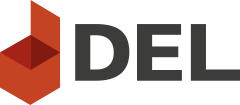Design Educators Conversing with Health Educators on Lessons Learned from Teaching Online for More Than a Decade
Panel: Gloria Gomez (OceanBrowser & University of Sydney) and Areli Avendaño (Deconstructing the Status Quo & RMIT)
Abstract
This panel will bring together health educators (from medicine and midwifery) and art and designer educators (from communication design, industrial design, design and technology, interaction design and education, and set design) to dialogue on benefits, challenges and opportunities of teaching online. The medical and midwifery panelists have been teaching online for more than a decade in which a component of their programmes are delivered using blended collaborative approaches. Students only come to campus for practical, tutorial courses or residential week. In those programmes, students study from where they work in rural or urban areas. To promote engagement, enhance feedback, and address isolation, they have developed approaches in which students partner with educators. Engagement and feedback is promoted thru synchronous discussions on the modules and student-led collaborative assignments. Almost overnight during the pandemic, some design educators participating in the panel were forced to change from zero to fully teaching online, while others went from 5% or 10% to fully teaching online. Online distance education requires design, planning, development that our health educators had time to evolve and reflect upon over a long period of time. As stated in the call DEL 2022, “a radically digital architecture of online and hyflex spaces of learning” is needed for teaching online in a manner that students feel engaged and not isolated. During the height of the pandemic, teaching fully online was an “unanticipated trend for art and design”. Our design education panelists will share challenges and opportunities identified during the implementations of their online deliveries, as they were forced to adapt to teaching online. We will learn about addressing challenges and identifying opportunities for research and grow. Two panelists were completely new to teaching online. These situations will be familiar to many at DEL 2022. Our health education panelists have advancing this trend for 10 plus years through the implementation of blended delivery or collaborative development models. The articles titled “Using small tutorial groups within a blended Bachelor of Midwifery programme” provides a good introduction their delivery model (Kensington et al., 2017). While the article titled “Educating the next generation – The University if Sydney’s Discipline of Ophthalmology at Save Sight Institute” provides an overview of their flexible e-learning postgraduate programmes (Grigg et al., 2018, pp. 57 – 61).
THE CONVERSATION will be sparked by three DEL 2022 questions: – How is your field advancing access, equity, and inclusion within digital spaces? – How is your programme considering priorities and premiums of learning architectures, both physical and digital, codifying contested zones of privilege and access to innovation in digitally engaged learning? – What do you think are the practices and process for inclusive teaching and culturally responsive pedagogy that may forge new paradigms of participation and empowerment in learning?
THE DISCUSSION will be enriched by the "Manifesto for Teaching Online"(Bayne et al. 2020) and "Dissolving the Dichotomies Between Online and Campus#Based Teaching: A Collective Response to the Manifesto for Teaching Online" (MacKenzie et al. 2021).
